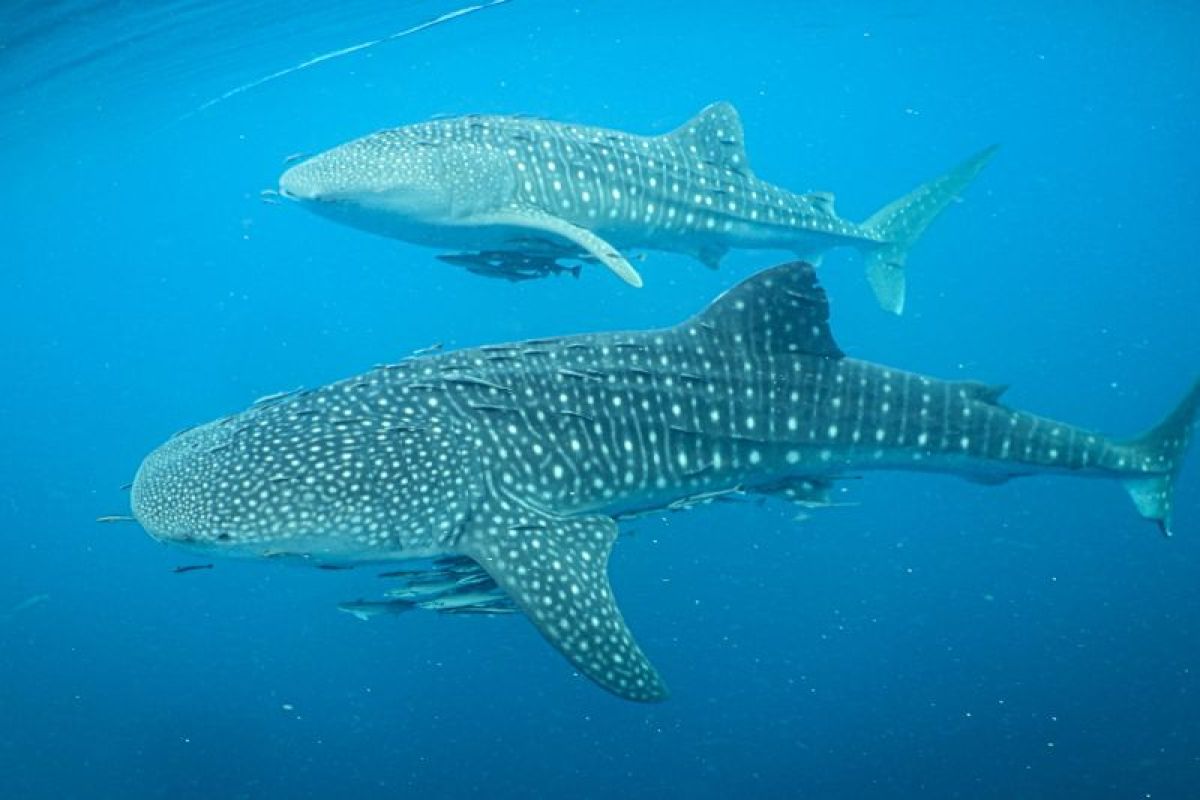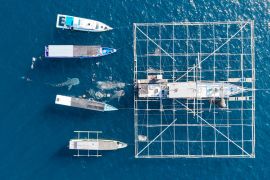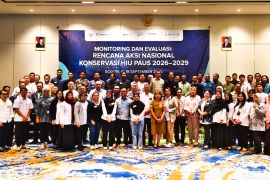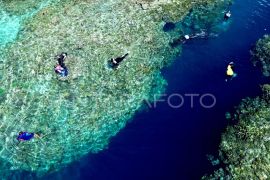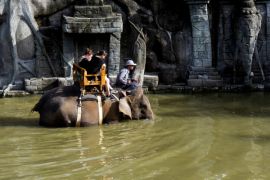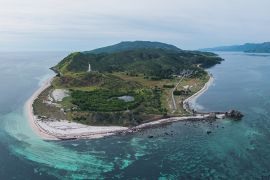The ministry's Director of Species and Genetic Conservation, Sarmintohadi, said that whale sharks (Rhincodon typus) are a fully protected species and included on the IUCN Red List and CITES appendices.
According to him, whale shark protection is not merely about species conservation, but also related to the health of marine ecosystems and food security.
"Whale shark conservation governance must be improved with a more systematic strategy. Factors such as limited emergency response during whale shark strandings, as well as unsustainable whale shark tourism activities that do not comply with technical guidelines, are important points to note in this evaluation," he noted on Wednesday.
The monitoring and evaluation activities are conducted in collaboration with Konservasi Indonesia (KI) and the Coral Triangle Initiative on Coral Reefs, Fisheries, and Food Security (CTI-CFF).
Sarmintohadi mentioned that the 2021-2025 action plan has served as an important guideline for protection and non-extractive use efforts.
However, the species is faced with major threats, from strandings to poorly regulated tourism. Therefore, this comprehensive evaluation is crucial to ensure more adaptive and effective strategic steps in the future, he added.
Besides conservation aspects, the study and evaluation highlight the importance of whale shark tourism governance. According to him, poorly managed tourism activities can pose risks to whale shark health and visitor safety.
"Therefore, in the 2026-2029 National Action Plan, standards for wildlife-friendly and sustainable tourism management, as well as strandings handling, will be top priorities," Sarmintohadi remarked.
In the same statement, Vice President Program of KI, Fitri Hasibuan, called on the importance of integrating science and community involvement in conservation strategies.
KI research shows that whale sharks inhabiting tropical and subtropical waters, including Indonesian waters, are known to have biological characteristics that are vulnerable to threats, such as slow growth, low fecundity, and a long maturity age.
"Several locations in Indonesia, such as Cenderawasih Bay, Kaimana, Saleh Bay, Gorontalo, Probolinggo, and the Derawan Islands, have become important aggregations of young whale sharks, supporting migration and feeding behavior. These are key habitats for the Indo-Pacific whale shark population and gives it a global responsibility for conserving this charismatic species," Hasibuan noted.
Monitoring and evaluation also highlighted weaknesses that require further action, including the increasing mitigation of strandings in various regions. During the 2021-2025 period, an average of 20 whale shark species were recorded stranded.
Related news: Whale sharks become new tourist magnet in E Kalimantan's Pulau Miang
Related news: NTB sets new rules to promote responsible whale shark tourism
Related news: Need new approach to limit ship strikes on whale sharks: KI
Translator: Resinta Sulistiyandari
Editor: Azis Kurmala
Copyright © ANTARA 2025
